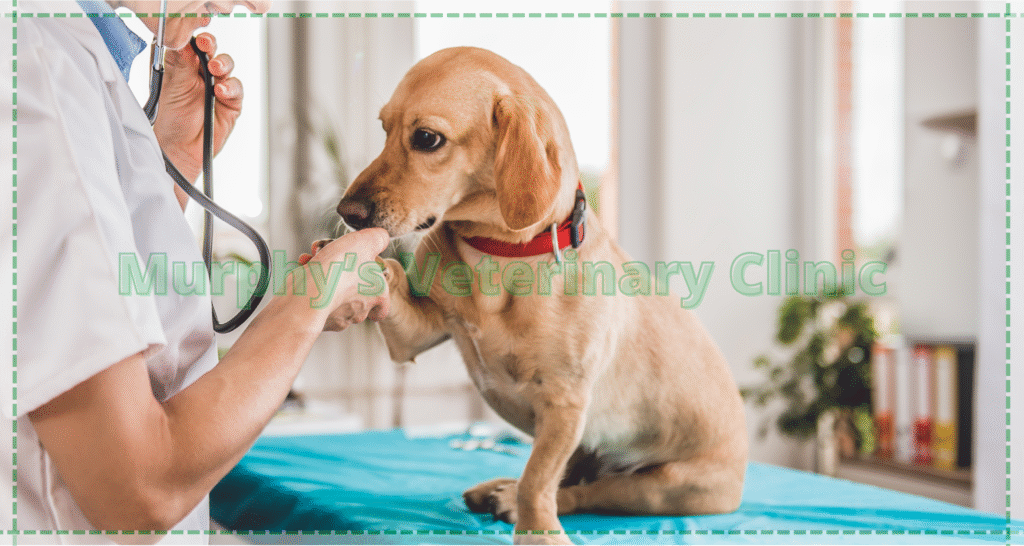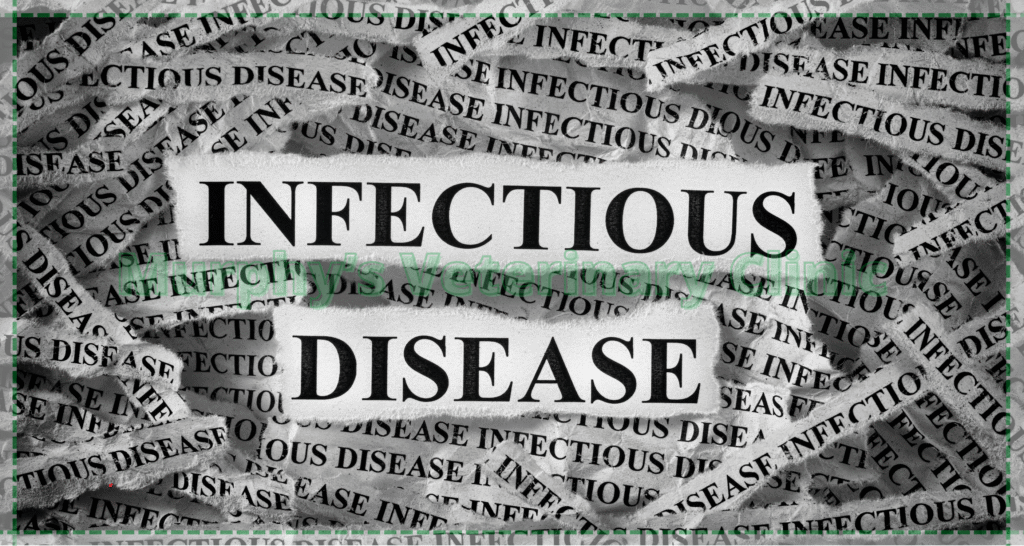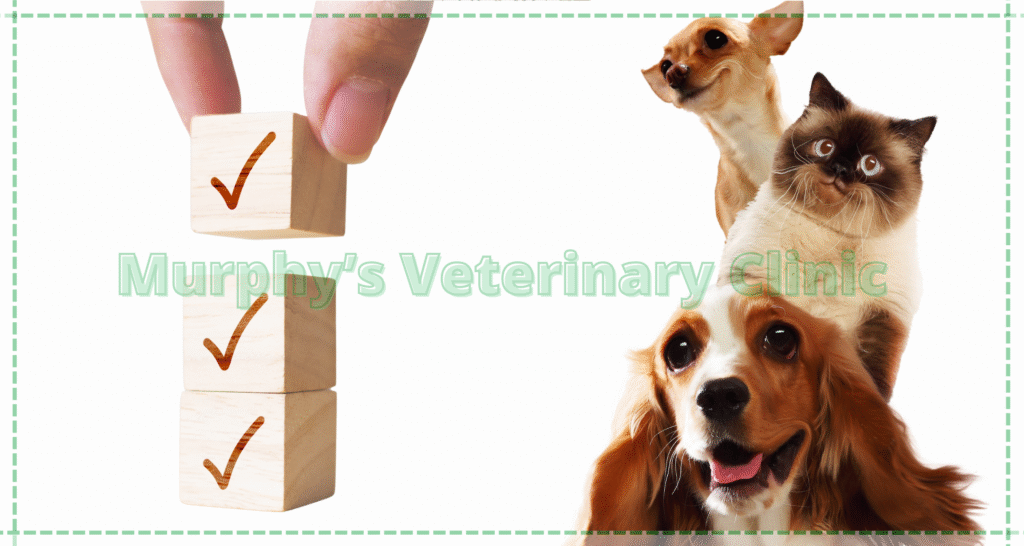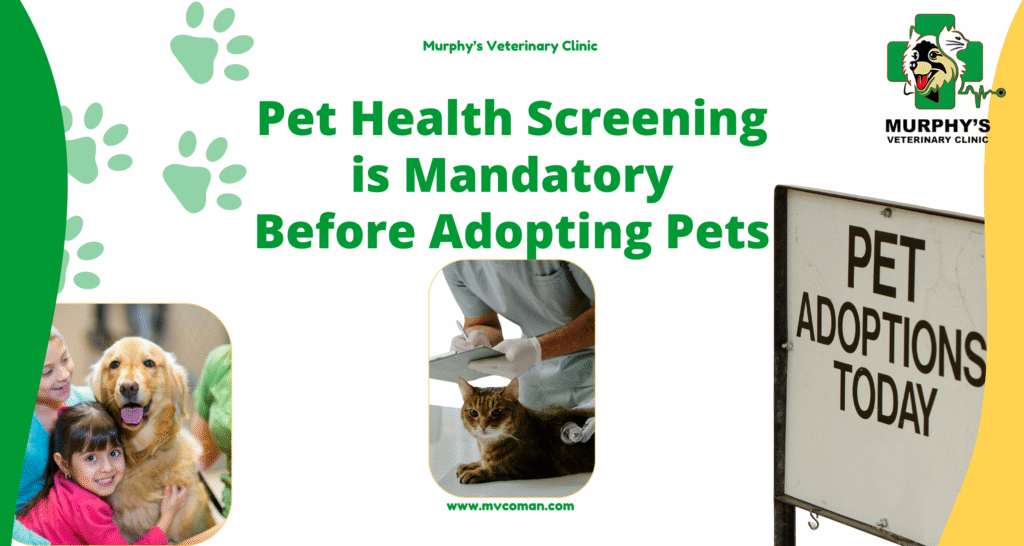Blog, Diseases & Treatments, Health & General Care, Vaccination & Prevention
Pet Health Screening is Mandatory Before Adopting Pets
Topics covered in this article:
- General Physical Examination
- Infectious Disease Testing
- Genetic and Congenital Disorders
- Nutritional and Body Condition Evaluation
- Economic and Financial Considerations
- Conclusion
Pet Health Screening is a vital medical necessity that ensures the well-being of both animals and their future families. Mandatory health screening before adopting pets allows veterinarians to identify hidden diseases, prevent the spread of infections, and secure a safe environment for the animal and household. This process includes physical examinations, infectious disease testing, genetic evaluations, and nutritional assessments. By conducting these checks, future pet owners gain confidence in their decision and avoid unexpected medical expenses. Additionally, Pet Health Screening plays an essential role in protecting public health and preventing zoonotic diseases that may affect humans. Adoption agencies and animal welfare organizations often enforce this step as a prerequisite for adoption. Ultimately, Pet Health Screening represents a preventive approach that promotes long-term benefits for pets, families, and society as a whole.

General Physical Examination
A complete physical examination is the foundation of Pet Health Screening before adoption. Veterinarians perform a systematic check of the eyes, ears, oral cavity, skin, cardiovascular, and respiratory systems to detect abnormalities. Assessing weight, body condition, and hydration status helps establish a baseline for overall health. This process enables early identification of underlying conditions such as cardiac murmurs, respiratory distress, or dermatological disorders. Pet Health Screening at this stage reassures adopters that their new companion has been medically evaluated and potential risks have been minimized. Regular physical assessments not only improve animal welfare but also support preventive care strategies for long-term health.
- Eye and ear evaluation
- Oral and dental health assessment
- Skin and coat examination
- Cardiopulmonary function check
- Weight and nutritional assessment

Infectious Disease Testing
Infectious disease testing is one of the most crucial steps in Pet Health Screening. Companion animals may carry pathogens that threaten both animal and human health. Standard procedures include complete blood counts, serological testing, and diagnostic assays for common infections such as FIV and FeLV in cats or parvovirus and distemper in dogs. Veterinary screening also evaluates internal and external parasitic infestations, ensuring proper treatment before adoption. Pet Health Screening in this context prevents disease outbreaks, enhances herd health, and safeguards households from zoonotic transmission. Comprehensive infectious disease evaluation creates a healthier environment for all pets within the community.
- Complete blood tests
- Viral infection screening
- Parasitic disease detection
- Updated vaccination protocols
- Zoonotic disease evaluation

Genetic and Congenital Disorders
Many pets suffer from inherited or congenital disorders that may not be visible during initial observation. Pet Health Screening provides specialized diagnostic tools to identify skeletal malformations, hereditary cardiac conditions, and metabolic syndromes. Imaging modalities such as X-rays, ultrasound, and echocardiography are frequently employed to reveal underlying abnormalities. Early detection allows veterinarians to recommend preventive management or therapeutic intervention before the condition worsens. Pet Health Screening in this category ensures adopters are informed about potential long-term challenges and can make decisions with full medical transparency. Addressing congenital and genetic issues at the adoption stage significantly improves the pet’s future quality of life.
- Skeletal and orthopedic abnormalities
- Common genetic disease testing
- Cardiac disorder screening
- Diagnostic imaging (X-ray, ultrasound)
- Organ function evaluations

Nutritional and Body Condition Evaluation
Nutritional health is a cornerstone of overall well-being, and Pet Health Screening includes thorough evaluation of body condition scores (BCS), dental status, and coat quality. Many shelter animals arrive malnourished or overweight, which can predispose them to chronic health problems. Veterinarians assess weight-to-height ratios, muscle mass, and caloric intake requirements to establish tailored feeding guidelines. Monitoring skin and coat health further reveals systemic issues such as endocrine imbalances or nutrient deficiencies. Pet Health Screening, supported by clinical scoring systems, helps adopters understand the pet’s health baseline and implement effective dietary strategies. This scientific approach reduces future risks and improves overall life expectancy.
| Indicator | Optimal Range | Abnormal Findings | Clinical Significance |
| Weight | Normal range | Underweight/Obesity | Marker of general health |
| BCS (Body Condition Score) | 4–5 of 9 | Below 3 or above 6 | Nutritional evaluation tool |
| Dental health | No plaque/disease | Infections or fractures | Direct effect on feeding |
| Skin and coat quality | Glossy, intact | Hair loss or lesions | Indicator of internal disease |

Economic and Financial Considerations
Adopting a pet involves both emotional commitment and financial responsibility. Pet Health Screening ensures that adopters have a clear understanding of possible medical expenses before making a lifelong decision. Veterinary professionals provide cost estimates for preventive care, laboratory diagnostics, vaccinations, and potential treatments. Awareness of these expenses helps families prepare for future obligations and prevents unexpected financial burdens. Pet Health Screening thus acts as a financial safeguard, balancing the joy of adoption with realistic medical planning. Considering economic aspects allows adopters to ensure consistent healthcare and reduces the likelihood of pet abandonment due to high costs.
| Type of Expense | Estimated Range | Importance |
| Initial physical exam | $30 – $80 | Essential |
| Specialized diagnostic tests | $100 – $300 | Case-dependent |
| Vaccinations | $50 – $150 | Preventive necessity |
| Potential treatments | Variable | Future planning |
Conclusion
Pet Health Screening before adoption is not only a medical requirement but also a moral responsibility. This preventive process guarantees that new companions are healthy, vaccinated, and free from transmissible diseases. Detailed evaluations reduce long-term treatment costs, improve animal welfare, and safeguard human health from zoonotic risks. Through structured examinations, infectious disease testing, genetic evaluations, and nutritional assessments, veterinarians ensure the best start for adopted pets. It empowers adopters with the knowledge to make informed decisions while minimizing health risks. Ultimately, Pet Health Screening strengthens the human–animal bond and contributes to public health stability. It remains an essential component of responsible pet adoption and lifelong animal care.
Murphy’s Veterinary Clinic specializes in comprehensive Pet Health Screening for families considering adoption. With advanced diagnostic imaging, specialized laboratory testing, and preventive care programs, the clinic ensures every pet undergoes complete medical evaluation before joining a new home. Experienced veterinarians provide tailored nutritional guidance, vaccination schedules, and long-term wellness plans. By partnering with Murphy’s Veterinary Clinic, adopters gain peace of mind knowing that their pets are starting a healthier and safer life.


